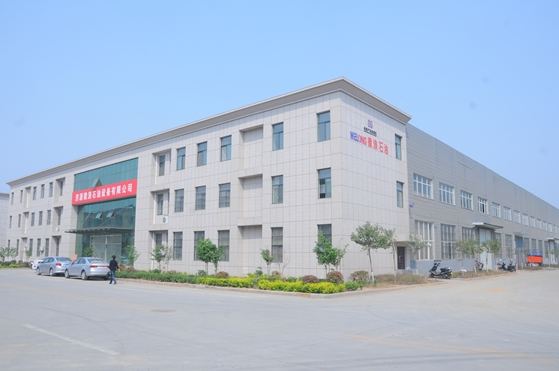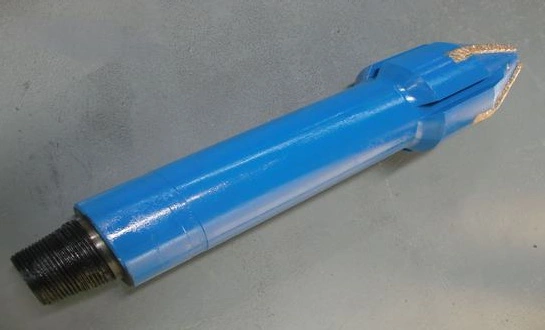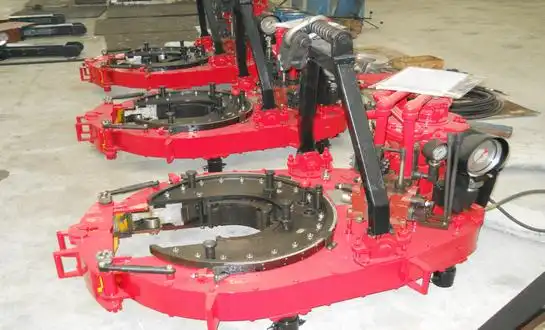Benefits of custom-forged steel rolls in steel production
Superior strength and durability
Custom-forged steel rolls offer exceptional strength and durability, making them ideal for demanding steel production environments. The forging process aligns the metal's grain structure, resulting in a more uniform and robust material. This enhanced strength allows forged steel rolls to withstand higher loads and temperatures, reducing the risk of premature failure and extending their operational lifespan. The superior durability of these rolls translates to fewer replacements and less downtime, ultimately improving the overall efficiency of steel production processes.
Improved surface finish and product quality
One of the primary advantages of custom-forged steel rolls is their ability to produce superior surface finishes on steel products. The hardness and uniformity of forged steel rolls contribute to more consistent and smoother surfaces on the rolled material. This improved surface quality is particularly important for high-end steel products that require precise dimensions and excellent surface characteristics. By using custom-forged steel rolls, steel plants can achieve tighter tolerances and better overall product quality, meeting the demanding specifications of industries such as automotive, aerospace, and construction.
Customization options for specific applications
Custom-forged steel rolls offer a high degree of flexibility in terms of design and material composition. This customization allows steel plants to tailor the rolls to their specific production requirements, optimizing performance for particular steel grades or rolling conditions. Manufacturers can adjust factors such as alloy composition, heat treatment, and surface treatments to enhance the mill rolls' performance in specific applications. This level of customization enables steel plants to achieve optimal results across a wide range of products and production processes, maximizing efficiency and product quality.
When to choose cast iron rolls over forged steel rolls
Lower initial cost and economic considerations
Cast iron rolls often present a more economical option for steel plants, particularly in terms of initial investment. The manufacturing process for cast iron rolls is generally less complex and energy-intensive compared to forging, resulting in lower production costs. This cost advantage makes cast iron rolls an attractive choice for applications where budget constraints are a significant factor or where the production requirements do not necessarily demand the superior strength and durability of forged steel rolls. For steel plants operating on tight budgets or those producing less demanding steel products, cast iron rolls can offer a cost-effective solution without significantly compromising performance.
Thermal properties and heat dissipation
Cast iron rolls possess unique thermal properties that can be advantageous in certain steel production scenarios. The material's inherent ability to absorb and dissipate heat more effectively than forged steel can be beneficial in applications where temperature control is critical. This characteristic helps maintain more stable rolling conditions, particularly in processes involving thinner gauge materials or where precise temperature management is essential. The superior heat dissipation of cast iron rolls can contribute to improved product consistency and reduced risk of thermal-related defects in the rolled steel.

Suitability for specific steel grades and products
While forged steel rolls excel in many high-demand applications, cast iron rolls remain the preferred choice for certain steel grades and product types. Cast iron rolls are particularly well-suited for rolling softer steel grades or in processes where the rolling forces are relatively lower. Their unique properties, such as good wear resistance and self-lubricating characteristics, make them ideal for applications like roughing stands in hot rolling mills or in the production of certain flat steel products. The choice between cast iron and forged steel rolls often depends on a careful analysis of the specific steel grade being produced, the rolling conditions, and the desired end product characteristics.
Cost considerations for custom roll manufacturing
Initial investment vs. long-term value
When evaluating the cost of custom roll manufacturing, it's essential to consider both the initial investment and the long-term value proposition. While custom-forged steel rolls typically require a higher upfront cost compared to cast iron rolls, their superior durability and performance characteristics often result in a lower total cost of ownership over time. The extended lifespan of forged steel rolls, combined with reduced maintenance requirements and fewer production interruptions, can offset the higher initial investment. Steel plants must carefully analyze their production needs, budget constraints, and long-term operational goals to determine whether the premium price of custom-forged rolls is justified by the potential improvements in efficiency and product quality.
Maintenance and replacement frequency
The maintenance and replacement frequency of mill rolls significantly impact the overall cost of steel production. Custom-forged steel rolls generally require less frequent maintenance and replacement due to their superior wear resistance and durability. This reduced maintenance schedule can lead to substantial cost savings in terms of labor, spare parts, and production downtime. Conversely, while cast iron rolls may have a lower initial cost, they may require more frequent replacements and maintenance interventions, potentially increasing long-term operational expenses. Steel plant operators must carefully evaluate the trade-offs between initial costs and ongoing maintenance requirements to optimize their roll selection and minimize total production costs.
Impact on production efficiency and quality
The choice of roll type can have a significant impact on production efficiency and product quality, both of which directly affect the bottom line of steel plants. Custom-forged steel rolls, with their superior strength and surface finish capabilities, can contribute to higher production speeds, improved yield rates, and better overall product quality. These factors can lead to increased revenue through higher output volumes and the ability to command premium prices for high-quality steel products. While the initial investment in custom-forged rolls may be higher, the potential for improved production efficiency and product quality can result in a stronger return on investment over time. Steel plants must carefully consider how mill roll selection aligns with their production goals and quality standards to maximize the cost-effectiveness of their operations.
Source: CHINA WELONG-Oilfield tools Manufacturer
FAQ about Mill Rolls
What are the key differences between forged steel and cast iron rolls?
Forged steel rolls are known for their superior strength, durability, and ability to produce high-quality surface finishes. They are created through a forging process that aligns the metal's grain structure, resulting in a more uniform and robust material. Cast iron rolls, on the other hand, are more economical to produce and offer better heat dissipation properties. They are suitable for certain applications, particularly those involving softer steel grades or lower rolling forces. The choice between the two depends on specific production requirements, budget considerations, and desired end product characteristics.
How do custom rolls improve steel production processes?
Custom rolls, particularly custom-forged steel rolls, can significantly improve steel production processes in several ways. They can be tailored to specific production requirements, optimizing performance for particular steel grades or rolling conditions. This customization allows for improved product quality, tighter tolerances, and better surface finishes. Custom rolls can also enhance production efficiency by reducing downtime due to their increased durability and longer operational lifespan. Additionally, the ability to customize roll designs and materials can lead to innovations in steel production, enabling manufacturers to meet evolving industry demands and specifications.
What factors should be considered when choosing between forged steel and cast iron rolls?
When choosing between forged steel and cast iron rolls, several factors should be considered:
1. Production requirements: The specific steel grades being produced and the desired end product characteristics.
2. Rolling conditions: The forces and temperatures involved in the rolling process.
3. Initial cost vs. long-term value: Balancing upfront investment with potential long-term savings.
4. Maintenance requirements: Frequency of roll changes and maintenance interventions.
5. Production efficiency: Impact on production speeds and yield rates.
6. Quality standards: Required surface finish and dimensional tolerances.
7. Thermal management: Heat dissipation needs in the rolling process.
8. Plant budget and financial considerations. B
y carefully evaluating these factors, steel plants can make informed decisions that optimize their roll selection and overall production processes.
In conclusion, the choice between custom forged steel rolls and cast iron rolls for steel plants is a critical decision that impacts production efficiency, product quality, and overall operational costs. While custom forged steel rolls offer superior strength, durability, and surface finish capabilities, cast iron rolls provide cost-effective solutions for certain applications and steel grades. By carefully considering the specific requirements of their production processes and conducting thorough cost-benefit analyses, steel plant operators can make informed decisions that optimize their rolling operations. For more information on custom mill rolls and expert guidance on selecting the right rolls for your steel production needs, please contact us at oiltools15@welongpost.com. Welong is committed to providing high-quality, customized solutions to meet the diverse needs of the steel industry.





